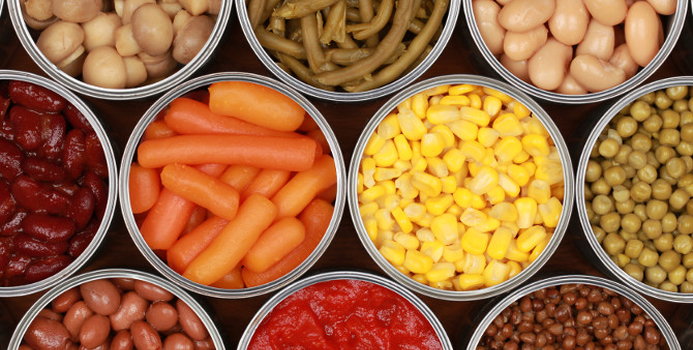Vegetables are an important part of a healthy, well-balanced diet. They are low in fat and calories, contain no cholesterol and are rich in vitamins like A and C, and minerals and fiber. But exactly what form of vegetables are best? Are there more vitamins in fresh, canned or frozen vegetables?
Backyard Garden Vegetables
Most people believe that fresh vegetables are the best option because they have not been tampered with or processed. This is true if you are purchasing local, native produce from a farmers market or are picking them straight from your backyard garden. However, if you are getting your vegetables from a grocery store or buying a non-native vegetable, this might not be the case.
The nutritional value of fresh vegetables is determined by their seasonality and availability in the area. Many vegetables have travelled far distances to land in the produce section of your chain grocery store. When the vegetables are shipped across the country, they are exposed to extreme temperatures which release their important nutrients like vitamin A and C. Many fresh vegetables, which need to be shipped great distances, have also been harvested before they are ripe (before vitamins and nutrients have had a chance to fully develop within the vegetable).
From the Freezer Section
Frozen vegetables, on the other hand, are picked at the peak of ripeness then blanched and flash-frozen to remove bacteria and lock in their essential vitamins and nutrients. The faster they are frozen after picking, the more nutrients they will retain. Plus, while fresh vegetables have a lifespan of only a week to two weeks at best, frozen vegetables can last much longer in the safety of your freezer.
Straight off the Shelf
Canned vegetables can lose some of their vitamin C in heating process during canning, but when they are handled and canned quickly, much like frozen foods, the majority of nutrients are locked in and retained. Therefore, canned vegetables can have the same, if not more nutrients than fresh vegetables and the levels of these nutrients remain the same even after one to two years of storage. Canned vegetables are also one of the safest products to choose, as they often contain no preservatives and because they are heated before being canned, are free from food related contamination.
Read the Label
Salt is often added to canned or frozen vegetables for taste reasons, so be sure to read the label and choose products that contain low or no sodium levels. When choosing frozen vegetables, the only ingredient listed should be vegetables. Boiling vegetables also releases nutrients, so be sure to boil them for as little time as possible.
Increase Your Daily Intake
The average person eats only one third of the recommended daily intake of vegetables each day. Whether you choose fresh, frozen or canned vegetables, they will all provide you with the crucial vitamins and nutrients your body needs. So whether you pick them straight from your garden, dig into your freezer or pull them off your shelf, try to add vegetables into your meals each day to keep your body healthy.



